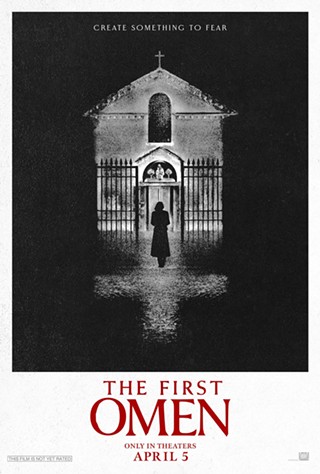There really should be two reviews for the documentary Searching for Sugar Man: one for anyone going to the film completely blind, and one for those who watch trailers and do their research.
Let's talk to the uninitiated first: You should see this movie at the soonest available opportunity. It's fantastic, unexpected and somehow real. That's less of a review than a strong encouragement, but it will have to do. Just buy a ticket and go. Seriously, whether or not you love the film after the fact, simply knowing the story is worth the experience. And the music is good, too.
Oh, and thank you for not numbing every possible effect a movie can have on you by watching clips and trailers on the Internet. That clean slate will serve you well in this case, because even knowing the premise will ruin the surprise at least a little.
Now, to everyone else: It's not a universally bad thing to watch trailers. After all, if you're stoked for the new James Bond movie, the trailer is only going to help. And you really don't care, at a certain point, what the trailer for a Michael Bay flick shows you. So you can't be blamed for checking out Searching for Sugar Man—but because it's not the sort of thing you see at the multiplex every day, knowing even the smallest detail can deflate your reaction as the film unfolds. And since you've probably seen the trailer if you're still reading this, you may already know exactly what that feels like.
If you're cheating here and have not seen the trailer, this is a gigantic spoiler alert. From here on out, you can only blame yourself.
In the late 1960s, when record companies were looking for the next Bob Dylan, Detroit gave rise to Sixto Rodriguez. His desperate urban folk songs never made a single dent in the U.S., but somehow—nobody really knows how—a copy of his album Cold Fact was smuggled into South Africa.
During apartheid, a lot of Western music wasn't heard there at all, and as a consequence, Rodriguez became, in the words of a record executive, bigger than Elvis and the Rolling Stones. His two albums became essential listening, and Searching for Sugar Man claims Cold Fact played a significant cultural role in the nation rising out of its unfortunate, costly history of racial oppression.
The performer had no idea his music was resonating half a world away, and when he got out of the industry entirely after his second album, Rodriguez vanished, working odd construction jobs in his native Detroit. However, more than 30 years after his album was smuggled into Cape Town, the phone rang. For the first time, Rodriguez knew his story (even if he never wound up getting the royalties).
The trailer you saw tells you most of that, and spoils much of the remarkable discovery this film offers. What the promo can't communicate, though, is something deeper, and the real point of Searching for Sugar Man: Art is unpredictable. Its inspiration is mysterious, and its impact is impossible to divine. Somehow, a single album by an artist the rest of the world didn't bother to get to know became woven into the national fabric of an entirely different culture, in one of the most-totalitarian states in the world. There's no way this should have happened, and the way it did happen is the only way it could have.
Those who have not seen the trailer have already been encouraged to line up and see the film. That holds true for everyone who knows Rodriguez's astounding story as well. Searching for Sugar Man is what documentaries are supposed to be: a true story that expands your knowledge instead of just reinforcing beliefs you already have. And, again, the music is good. Maybe Rodriguez will finally gain an audience in the United States.










